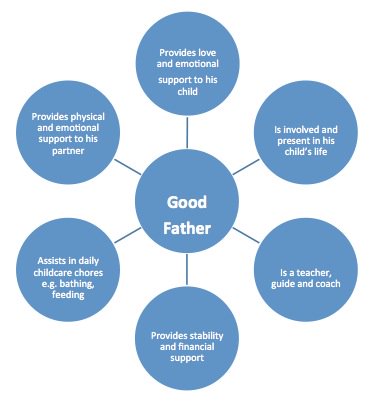What Makes a Good Dad: The Ultimate Guide for Modern Parenting
Welcome, super dads and dads-to-be! In the journey of fatherhood, you might find yourself questioning, “What makes a good dad?” Fear not, because you’re about to dive into a comprehensive guide that will not only address your doubts but also empower you to be the superhero your children believe you are! Here’s to celebrating fatherhood and unlocking the secrets to becoming a great dad.
Understanding the Role of a Dad in Today’s World
Before we delve into the attributes of a good dad, it’s essential to understand how the role of fathers has evolved. Gone are the days when dads were only seen as the breadwinners or distant disciplinarians. Today’s dads are hands-on, nurturing, and an integral part of their children’s lives, from the delivery room to the soccer field and beyond. Being a good dad in today’s world means being emotionally available, actively involved, and supportive in every facet of your child’s development.
The Pillars of Effective Fatherhood
- Presence Over Presents: Time spent with your children is worth more than any material gift. It’s the heart-to-heart talks, the shoulder rides, and the bedtime stories that count.
- Communication: Foster an environment where open dialogue is encouraged. Listen to your child’s thoughts and feelings, and express your own with clarity and kindness.
- Patience: Parenting is a constant learning curve. Embrace patience as your ally, understanding that every child grows and learns at their own pace.
- Positive Role Modeling: Be the mirror in which your children can see the best version of themselves. Your actions and words are the blueprint for their behavior and beliefs.
Key Qualities of a Good Dad
Now, let’s zoom in on the specific qualities that embody a good father. These elements are not just wishful thinking; they’re practical, straightforward, and achievable for every dad out there:
- Empathy: Understand and share the feelings of your child. Whether it’s understanding their fear of the dark or their disappointment in losing a soccer game, empathy builds a deeper connection.
- Consistency: Be consistent in your love, your rules, and your daily routines. Consistency provides a sense of security and reliability that children crave.
- Adaptability: As kids grow, they change. A good dad adapts his parenting style to meet the evolving needs of his child, from toddler years to teens and beyond.
- Respect: Show respect for your child’s opinions and feelings, and teach them to show the same respect for others. This builds a foundation of mutual understanding and empathy.
Actions Speak Louder Than Words
How can you put these qualities into action? Here are some practical ways to manifest these traits in your everyday life with your children:
- Join in on their playtime: Engage in your child’s world of imagination and play. It helps strengthen your bond and shows them you value their interests.
- Be their learning partner: Whether it’s helping with homework or exploring a new hobby together, being an active participant in their learning journey is invaluable.
- Set aside quality time: Designate special moments that are just for you and your child. This could be a weekly date to the ice cream shop or a night where you cook dinner together.
- Display affection: Hugs, high-fives, and words of affirmation go a long way. Regular, loving touch and praise reinforce your love and support.
The path to good fatherhood is a blend of love, commitment, and mindful effort. Remember, the fact that you’re seeking to learn more about what makes a good dad already puts you on the right track. As you continue to grow in your fatherly role, always keep in mind that every action you take and every word you say shapes the kind of dad you are and the person your child will become. Stay tuned for more in-depth explorations on each of the qualities and actions that contribute to being a…
[Continue Exploring the Journey of Fatherhood in Part 2]

5 Things Parents Should Know in Preparing for What Makes a Good Dad
Preparing for fatherhood can be as exciting as it is daunting. Here are five thoughtful insights to help you on the path to becoming a good dad:
- Solace in Support Networks: Good dads know they don’t have to go it alone. Build a support network of friends, family, and fellow parents. Sharing experiences and learning from others can guide you in your own parenting journey.
- Health and Well-being: Taking care of yourself physically and mentally equips you to take better care of your family. A healthy dad is more present, energetic, and ready to tackle the rigors of parenting.
- Financial Preparedness: Fatherhood brings new financial responsibilities. Proactively managing finances, budgeting for the family, and planning for the future are important steps in preparation.
- Learning is Lifelong: Embrace the fact that no one has all the answers. Be open to learning, whether it’s from books, parenting classes, or from the experiences each day as a dad brings.
- Emotional Intelligence: The ability to manage your own emotions and respond to your child’s emotions in a healthy way is crucial. It’s not just about what you do but also about how you react and adapt.
Nurturing the Bond from the Get-Go
Becoming a good dad starts right from the beginning. Here’s how to nurture that connection:
- Participate in prenatal activities: Attend doctor’s appointments and birthing classes with your partner. Feeling the baby’s kicks and being part of the process strengthens the early father-child bond.
- Early involvement: Change diapers, partake in feedings, and enjoy skin-to-skin contact. These initial interactions lay the foundation for a lifelong bond.
- Be proactive and informed: Read about each stage of child development to understand what your child is going through and how you can best support them.
- Create rituals and traditions: Establish your own special rituals with your child, like reading a particular book together or a special handshake. This creates shared memories and a unique dad-child connection.
- Guide through challenges: Be there to guide and support your child through challenges rather than shielding them from every difficulty. This teaches resilience and problem-solving.
The Balancing Act of Work and Fatherhood
Striking a balance between work and being a dad is critical for modern fathers:
- Set boundaries with work: Make it a point to leave work at a reasonable hour to spend evenings with your children. Enable as much work-life balance as possible.
- Stay connected during the day: A quick video call or a message can reassure your child that you’re thinking of them, even when you’re not physically there.
- Trust in quality over quantity: Even if your time is limited, make sure the moments you do spend with your children are meaningful and distraction-free.
- Leverage flexibility: If your job allows, flex your hours or work from home occasionally to attend your child’s events or simply be there when they need you.
- Be fully present: When you’re with your child, be truly there, not just physically but mentally as well. Put aside distractions and focus on your time together.
Good dads are not born—they’re made through effort, love, and a commitment to constantly grow. Embarking on this adventure requires a full heart and an open mind. Cherish every step, every challenge, and every triumph. The good dad is in you, and every day provides a new opportunity to showcase it.
[Continue Exploring the Journey of Fatherhood in Part 2]
See more great Things to Do with Kids in New Zealand here. For more information see here
Disclaimer
The articles available via our website provide general information only and we strongly urge readers to exercise caution and conduct their own thorough research and fact-checking. The information presented should not be taken as absolute truth, and, to the maximum extent permitted by law, we will not be held liable for any inaccuracies or errors in the content. It is essential for individuals to independently verify and validate the information before making any decisions or taking any actions based on the articles.




